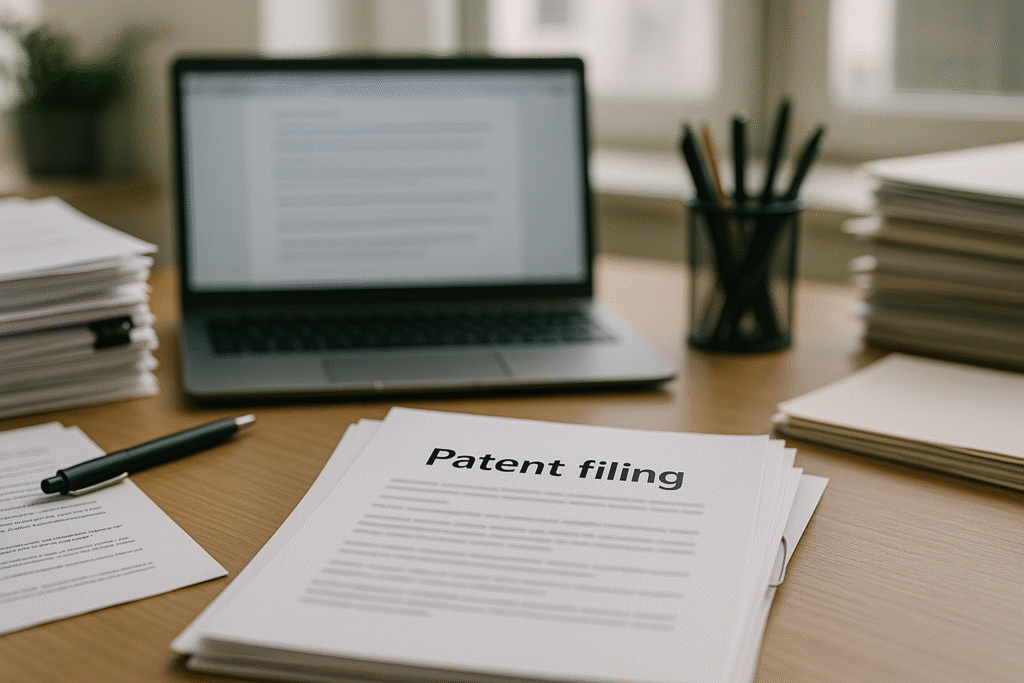
Intellectual property (IP) forms the backbone of a startup’s value proposition, often serving as the invisible yet invaluable asset that underpins its potential for success. Whether it’s proprietary technology, distinctive branding, or unique content, IP can provide a formidable competitive edge. Understanding and strategically managing IP is essential for budding entrepreneurs, as it can define the trajectory of a startup’s growth and its ability to secure funding.
IP is notoriously challenging to value because its worth often lies in the future benefits it can generate. However, when wielded effectively, it can create barriers to entry for competitors, protect innovations, and establish trust with investors and customers alike. From patents and copyrights to trade secrets and trademarks, each type of IP offers unique advantages and considerations.
Patents
Patents are perhaps the most recognisable form of IP protection, but they are also one of the most challenging to obtain. To qualify for a patent, an innovation must be useful, novel, and non-obvious—criteria that ensure only truly groundbreaking ideas are granted this level of protection. Achieving this bar signifies a significant advantage for startups, as it can act as a deterrent to competitors and an assurance to investors of the startup’s originality and ingenuity.
The controversial case of Martin Shkreli highlights the power—and potential misuse—of patents. Shkreli infamously raised the price of a life-saving drug by 5000%, leveraging the patent protection as a legal monopoly. While patents incentivise innovation by granting exclusivity, they must be balanced against antitrust laws designed to prevent the abuse of market dominance. This tension underscores the dual role of patents: they stimulate progress by rewarding creators but must also be managed responsibly to prevent harm to consumers.
Timing is critical when it comes to patents. Entrepreneurs should aim to secure patent protection early in the innovation process, ideally before bringing a product to market. This not only safeguards their invention but also prevents competitors from patenting the same innovation and blocking its use. Even free-spirited entrepreneurs who resist gated IP practices should consider the risks of leaving their innovations vulnerable.
Copyrights
Copyright automatically protects original creations, including written works, music, software, and more. While registration isn’t mandatory, it provides added clarity and legal strength, especially in disputes. In the tech world, software developers sometimes include intentionally useless code snippets—known as “canary code”—to help identify when their software has been unlawfully copied. These hidden markers act as an early warning system, enabling companies to detect and address copyright violations swiftly.
For startups, understanding copyright law is essential not only for protecting their creations but also for ensuring they don’t inadvertently infringe on others’ work. Copyrights are particularly important for content-driven businesses, where the value lies in the originality and uniqueness of the material they produce.
Trade Secrets
Unlike patents or copyrights, trade secrets offer protection for valuable information that is kept confidential. These might include algorithms, manufacturing processes, or even customer lists. However, a critical caveat is that trade secrets lose their protected status once they are made public—even if the disclosure is unauthorised.
Startups must take proactive measures to safeguard trade secrets. This often includes implementing strict access controls, employing encryption, and requiring employees and partners to sign non-disclosure agreements (NDAs). NDAs provide a legal mechanism to seek damages if sensitive information is leaked, but they cannot undo the damage caused by public exposure.
The counterintuitive nature of trade secrets means that startups must weigh the risks and benefits of relying on secrecy versus formal IP protection. While secrecy can be cost-effective and indefinite, it is also fragile and reliant on strict internal controls.
Trademarks
Trademarks protect brand names, logos, and other identifiers that distinguish a company’s products or services. Strong trademarks are critical for startups looking to build brand recognition and customer loyalty. However, maintaining a trademark requires vigilance. If a trademarked term becomes genericised—like “escalator” or “aspirin”—it can no longer be protected, potentially eroding a company’s brand equity.
A notable example involves M&S and its Percy Pig trademark. When a small ice-cream parlour inadvertently used the Percy Pig name, M&S sent a lawyer’s letter to politely but firmly protect its trademark. Such actions are necessary to maintain ownership and prevent dilution, even if they appear heavy-handed.
Startups should carefully choose their trademarks, ensuring they are distinctive and legally defensible. Regularly monitoring for potential infringements and taking appropriate action when necessary are crucial steps in maintaining the strength of a trademark.
Before you embark on a startup, consider intellectual property perspectives
Intellectual property is a powerful tool for startups, offering protection, differentiation, and value creation. From the rigorous process of securing patents to the automatic yet vital protections of copyright, the strategic use of IP can elevate a startup from a good idea to a thriving business. Trade secrets and trademarks further enrich the IP toolkit, allowing startups to safeguard their innovations and build strong, recognisable brands.
Navigating the complexities of IP law requires foresight, diligence, and sometimes, professional advice. This is expensive though, so you want to take as many proactive steps on your own to protect what is rightfully yours.